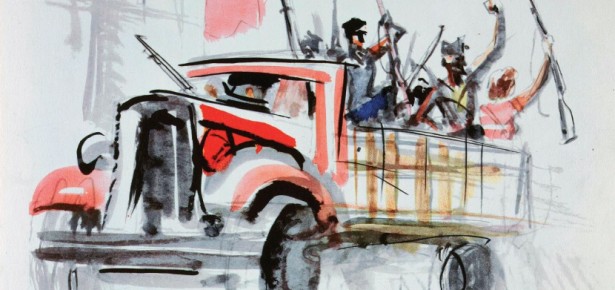
In January 2012, the Spanish version of my Cambridge University Press monograph on Republican terror in Madrid during the Spanish Civil War was published. Having worked on this project for a decade, I was well aware that the book’s findings might be distasteful for some. At least 8,000 so-called ‘fascists’ were executed in the Spanish capital during the conflict, and the killings were a huge blow to Republican attempts to present themselves as fighting for democracy. Republican sympathisers then and now claim that these largely extrajudicial murders were carried out mainly by anarchist or criminal ‘uncontrollables’ without the approval of the Republican government, which eventually put an end to the terror after the first six months of the war. My research, on the other hand, suggested that the perpetrators were generally skilled leftist Popular Front militants who subsequently entered the government’s reconstituted security forces. Most importantly, I suggested that terror should not be seen as extraneous to the antifascist war effort, but integral to it, as the elimination of the internal enemy- the so-called ‘Fifth Column’ -was seen as a prerequisite for victory.
To my surprise, the book was serialised in one national newspaper- El Mundo– and its arguments reported in others. The important exception was the centre-left daily El País. This was an ominous sign of things to come. I was of course interested in how pro-Republican historians would respond to (and critique) the book. I got my answer that spring with the publication of En el combate por la historia [Fighting for History]. This was a volume edited by Professor Ángel Viñas of the Complutense University in Madrid. Viñas is well-known in Spain as the scourge of right-wing ‘revisionism’. This book was no exception. In his chapter ‘Francoist Residues and Offshoots: Some Examples’, he cited my work. There was no attempt to analyse my arguments; I was lambasted for using Francoist sources, as if no other historian have used these sources before. Most depressingly, there was no interest in considering the book as a work of history; rather he saw it as a weapon to pursue a nefarious political agenda.
I am not the only historian to have been subjected to Viñas’s invective. And Viñas is only one example of a ‘militant tendency’ within the historiography of the Spanish Civil War that is determined to defend the reputation of the antifascist ‘last great cause’ that so strikingly caught the imagination of intellectuals in the 1930s. Nearly eighty years after the beginning of the conflict and forty years after the death of General Franco, any perceived criticism of the righteousness of the Republican cause is to risk accusations of ‘neo-Francoist revisionism’.
Foreign commentators often criticise Spaniards for failing to come to terms with the dark history of the Civil War. By this they mean that there is a resistance to see Franco as a genocidal tyrant akin to Hitler and Stalin. This is accompanied by a romanticisation of the Republic and those who resisted Franco. Revolutionary anarchists, socialists and communists, it is averred, in reality fought to defend liberal democracy in July 1936. In fact, these ideas have shaped how the Spanish left has seen the civil war since at least the death of Franco in 1975. There has been little genuine reflection on why 50,000 ‘fascists’ were murdered in the Republican zone; the knee-jerk response is that Franco killed more people. This helps explain why the historiography on this crucial subject has been weak. To historicize Republican atrocities is to invite denunciations of ‘being a ‘Francoist residue’.
Latest Comments
Have your say!